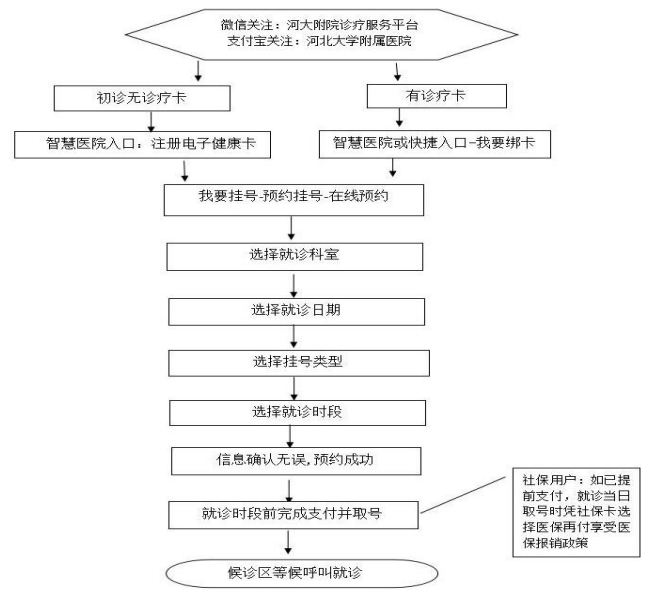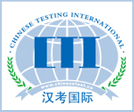
Hospital Introduction
Affiliated Hospital of Hebei University is one of the first national tertiary Grade A comprehensive hospitals that integrates medical, teaching, scientific research, prevention and health care, and rehabilitation functions. It is also a national baby friendly hospital. The hospital was founded in 1909 and was initially funded by the Epidemic Prevention Bureau. It has several observation beds and more than ten staff members. In 1945, it was renamed as Hebei Provincial Hospital. After the liberation, it was renamed as Hebei First People's Hospital and Hebei Provincial Hospital. In 1983, it was renamed as the Affiliated Hospital of Hebei Provincial Staff Medical College. In 2005, it belonged to Hebei University and was renamed as Affiliated Hospital of Hebei University . After 24 name changes and 4 site selections.

The hospital is divided into two hospital areas: the headquarters and the north hospital. The headquarters takes the advantage of comprehensive diagnosis and treatment of difficult and critical diseases, while the north hospital is characterized by comprehensive diagnosis and treatment of tumors and tuberculosis prevention and treatment. The hospital strives to research new ideas, projects, technologies, and therapies related to the development of domestic and foreign disciplines. With high-tech as the breakthrough point, it has carried out high-tech activities such as robot assisted laparoscopic surgery, full femtosecond myopia correction surgery, artificial intelligence (AI) three-dimensional reconstruction technology, and autonomous breathing single hole thoracoscopy, achieving the integration of medical technology with the world's forefront. In the performance evaluation of national tertiary public hospitals, the grades for 2019 and 2020 were A+and A respectively, ranking second in Hebei Province.
At present, the hospital has 4 national level clinical key specialty construction units (oncology, neurology, integrated traditional Chinese and Western medicine geriatric disease specialty, general surgery (including gastrointestinal surgery)), 2 national level clinical key specialty creation units (neurosurgery, pathology department), and 1 clinical key specialty of the Provincial Bureau of Traditional Chinese Medicine (integrated traditional Chinese and Western medicine cerebrovascular disease specialty), One clinical key specialty construction project of the Provincial Bureau of Traditional Chinese Medicine (Integrated Traditional Chinese and Western Medicine Oncology); 1 key discipline of the Education Department of Hebei Province (Oncology), 5 provincial key medical disciplines (Advanced) (General Surgery, Neurosurgery, Cardiovascular Medicine, Nephrology, Oncology), 2 provincial key medical disciplines (Development) (Radiology and Gynecology), and 1 provincial key discipline of Traditional Chinese Medicine (Clinical Integration of Traditional Chinese and Western Medicine); 10 provincial-level clinical key specialty construction projects (oncology, neurosurgery, urology, rehabilitation medicine, neurology, general surgery, nephrology, oncology, critical care medicine, respiratory science), and 9 provincial-level clinical key specialty cultivation projects (pediatric critical care, emergency medicine, gastroenterology, neonatology, anesthesia, hematology, dermatology, laboratory, and thoracic surgery); There are 12 municipal key clinical specialty construction units (neurology, emergency department, oncology department, oncology surgery, pediatrics, respiratory medicine, critical care medicine, cardiology, thoracic surgery, neurosurgery, cardiovascular surgery, anesthesia department).
The hospital is one of the first national clinical teaching and training demonstration centers, a national standardized training base for resident physicians, a national standardized training base for specialized physicians in general surgery, and a national key professional base for internal medicine and emergency departments; National designated hospitals for helicopter aviation medical rescue, national pilot hospitals for daytime surgery and tumor MDT, national endoscopic training bases, and national drug clinical trial institutions; We have the Key Laboratory of Tumor Radiochemotherapy Mechanisms and Regulations in Hebei Province, the Key Laboratory of Skeletal Metabolic Physiology in Chronic Kidney Disease in Hebei Province, the Key Laboratory of Digital Medicine Basic Research in General Surgery in Hebei Province, the Key Laboratory of Precision Diagnosis and Treatment of Gliomas in Hebei Province, the Key Laboratory of Precision Imaging in Inflammatory Related Tumors in Hebei Province, and the International Joint Research Center for Precision Medicine in Cancer in Hebei Province Hebei Province Cancer Microecological Metabolic Regulation Collaborative Innovation Center; The Oncology Department and Urology Department are continuing medical education bases in Hebei Province. We have first level doctoral and master's degree authorization points in clinical medicine, as well as postdoctoral research workstations, clinical medicine postdoctoral research mobile stations, and key units for academician cooperation.
Fast Track
1. By appointment


4.Hospital address: Affiliated Hospital of Hebei University , No. 212 Yuhua East Road, Baoding City, Hebei Province. Bus routes: Route 8, 1, 20, 108, 10, 37, 26. Get off at Affiliated Hospital of Hebei University .
Affiliated Hospital of Hebei University North Campus, No. 648 Dongfeng East Road, Baoding City, take bus routes 22, 101, 17, 5, 26, 61, and Y1 to get off at Affiliated Hospital of Hebei University North Campus.
















 京公网安备
京公网安备